|
By Jordan Austin, See the Triumph Guest Blogger
Safe and healthy relationships are a basic human right. For survivors of domestic violence, beginning or engaging in intimate relationships may pose unique challenges. The concept of thriving within the shelter of others may very well now have a new meaning, new difficulties, and new hesitations. After being victimized by a partner who was supposed to be supportive and kind, it’s understandable to have questions or fears about how to navigate future intimate relationships. To quote one participant in See The Triumph’s research, “I still have scars; they will always be a part of what made me who I am today.” If you have experienced the hurtful sting of abuse, you may still be living with the complications today. It’s important, though, to have hope toward the possibility of safe and supportive relationships, either intimately or with friends and family members. It’s also important to remember that survivors are not destined to repeat cycles of victimization. You may hold fears around fully trusting yourself or others again because of a previous relationship. Time may be necessary to learn about yourself, understand your views of others, and regain power and control over your life again. However, in addition to fostering these aspects self-awareness, there are rights you have as a survivor as you begin the process of moving toward healthier relationships. There is a chance an abuser has told you otherwise, that you do not deserve worth, importance, or efficacy. Combatting these internalized messages will help support you along your healing journey. In any future partnership, you have a right to make decisions for yourself again. Should you desire a community, a career, an education, a loving partner, you have a right to these things. Embracing intimacy and connection again may cause you to feel uncertain or uncomfortable. You have a right to welcome or decline new experiences and have a partner who is supportive and patient with you. No relationship will be perfect, but you also can question red flags and trust your gut; you are the expert on you. Desiring an intimate connection is a natural need of humans. You have a right to have hope for the future and healing. You have a right to be cared for. You have a right to be safe. Jordan Austin is a graduate of the University of North Carolina at Greensboro from the Couple and Family Counseling track. She is an advocate for secure, safe, and positive interpersonal relationships. Jordan hopes to embolden survivors of IPV and domestic violence as they reclaim their voice during the healing process. By Anonymous
She’s the sweetest person I know. She supports her family, loves working with kids, and has a heart big enough to hold the whole room. So the first thing I asked myself was, how did she get there? How did my friend end up in an abusive relationship? The very first time I met him, he seemed nice, and she looked so happy. He was funny, kind, and able to get along with all of her friends. Our conversations were filled with stories of their dates and weekend getaways, with her sharing memories of her “best relationship yet.” She thought that she had finally found the one. Then something changed. He became rude and dismissive of her friends. I began to feel uncomfortable in his presence and started to wonder what she saw in him. Everything was different. Soon our conversations turned into rushed phone calls, our laughter into whispers, and her smile into tears. There were stories of him opening her text messages, deleting male friends from her life, insisting he know the passwords to all of her social media accounts, and demanding an explanation for every minute she was late getting home. I couldn’t understand why she couldn’t see that he was isolating her from her friends and family. At first I was okay being the friend that she confided in. The friend who would pick up her when he left her somewhere stranded while he rode around in her car, the friend who would let her spend the night when staying at home was just a little too scary, the friend who would drop her back off to where I knew she was being abused. She would say that everything was okay, but once she got tired of hearing the advice from everyone around her, she shut down and would only mention him briefly. I was okay with this for a while, as I thought it was better to not hear about it then to worry about her all the time, especially because I felt she knew better. I treated her like an accomplice rather than a victim. Then one night, I experienced his abuse first hand. We were riding in the car and she was upset because they had been arguing all day. She had left the house earlier and wasn’t answering any of his phone calls. Suddenly, she looked down from the rearview mirror with a look of fear on her face before saying, “He’s following us”. As she began to speed up, I could see him right behind us. I can’t explain how I felt in that moment; I was scared, worried, and horrified at what my mind thought he was capable of. She was calling her mom, and I was calling the police. It only took us 7 minutes to get to the police station but it felt like 30. He followed us all the way there, pulling up beside the car, yelling for her to roll the window down, running red lights, and driving over medians in the middle of the road just to get to her. After she told the police that she didn’t want to press charges, I was so angry with her that we went weeks without speaking. I didn’t understand how she could still want to be with someone that would put her life and my life in danger. I had never been in a situation like that before and I was angry at her for putting me in it. It took me a while to realize that my friend was in a relationship that she had no control over and that she needed my support, not my judgment. I thought about how scared I was that night in the car and knew that if I felt that way then her fear was ten times greater. She was the one who had to deal with him every day. She was the one in love with a guy she barely recognized, and now she could barely recognize herself. My other friends and I made it our mission to be there for her whenever and wherever we could. It was more important to be by her side during this battle then to force her to end the war. We only had an objective view into her world and asking her to leave was clearly a lot harder than we thought. With our help, the support of her family, and various resources in the community, she was able to leave him. It didn’t happen overnight, but over time she was able to rebuild her self-esteem, reduce her anxiety, and start living again. Please remember that intimate partner violence is a real issue and affects many women. Your friends may become angry or defensive, but they know that their safety and well-being is your primary concern. Work with them to find the appropriate resources to get them the help they need. By Jen Jones, See the Triumph Guest Blogger Note: While intimate partner violence can happen in various circumstances (e.g., female perpetrators, same-sex relationships, etc.), this blog post will focus on male-perpetrated violence against women. Recently, I came across Tony Porter’s TED talk on the socialization of men. You can watch it here. This 11-minute video blew me away. Tony describes the messages that we give to our boys…messages like, “Be a man! (and, being a man is defined by having power and control, especially over women)” and “Women have less value and are sexual objects to be conquered or property to own.” These messages are not new to us; they’ve been taught by our culture for generations. But, these messages breed attitudes in men that perpetuate and justify violence against women. Additionally, our culture may not be the only place that boys receive these messages. Existing research indicates that children who grow up in violent homes are at greater risk to experience violence in their adult relationships (Murray & Graves, 2013). Witnessing domestic violence at home can lead kids to believe that abuse is normal or that controlling someone is a good way to show them “love”. Our sons may have learned these messages from our very own homes. So, what can we do about it? How do we rewrite a script that has been engrained in our culture for generations? What will instill respect for women in our young boys? To begin, staying silent about the issue will never result in positive change. Just TALKING about what healthy versus unhealthy relationships look like and challenging the societal messages is a good start. Does the idea of talking to your teenage son about relationships and all the accompanying potentially awkward topics make you start to sweat? Feeling a little uncomfortable? If so, consider the following five tips to help get you started: 1. Embrace the awkwardness. As humans, we tend to avoid all things that make us feel uncomfortable. Accept that tough conversations might be awkward at first, but the consequence of our silence is far worse. Our silence leaves boys learning about relationships from media, a violent society, and enlarged egos in teenage boy’s locker rooms. Instead, let’s lean into the awkwardness and with a morsel of bravery and lots of humility. Let’s start conversations about love, respect, and dating relationships with our sons. It may help ease the awkwardness by having these conversations while taking a walk, eating a meal, or riding in the car. 2. Ask open-ended questions. Open-ended questions encourage discussion and elicit more than a simple “yes” or “no” response. For example, you can ask, “What do you think a healthy relationship looks like?” Or, “how do you show a girl you like her?” You can use examples from movies and television shows you watch together to spark discussion about the words, actions, and attitudes that men use to control women. Be genuinely interested in what they have to say about their own experiences with relationships. 3. Then, LISTEN. I know you have a lot you want to say about healthy relationships, but with teenage boys, you have to earn the right to be heard and often that is earned through listening first. Resist the urge to interrupt, analyze, or criticize what they say. Instead, ask follow-up questions which shows you were really listening. 4. Enlist some help. Older men often have a profound impact on younger men’s lives, so make sure your son has some great male role models who show respect for their partners and foster healthy relationships. 5. Keep it up! This is not a one-and-done conversation. Make it an ongoing discussion. Keep your eye out for real life examples that create opportunities for you to talk about dignity and respect for all people. Has this blog sparked your interest? Here are some additional resources that might help you in continuing this conversation in your family: www.LoveIsRespect.org www.acalltomen.org References:
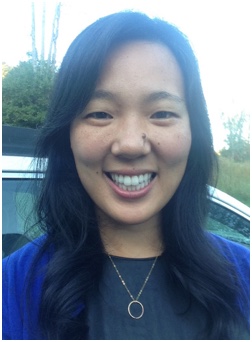 Jen Jones is a Masters student studying Couple and Family Counseling at the University of North Carolina at Greensboro. She has six years of experience working with kids and teens at a Christian summer camp, and looks forward to working with families in the future. By Lisa Smith, See the Triumph Guest Blogger In the year leading up to graduate school, I was lucky enough to land an Americorps position at a local agency that provides shelter, food, and financial assistance (among other services) to those in need in my community. It was a deeply rewarding and challenging position that helped me understand the struggles faced in my community and showed me the deep wells of courage that countless individuals wield in the face of poverty and hardship on a daily basis. When I think of the courage I witnessed during my time at that agency, the face of one woman in particular surfaces to the forefront of my mind. I was working the front desk when she came in, and I remember smiling and asking the standard “What can we help you with today?” greeting. I will never forget her face as she said, “Everything. I need help with everything.” She explained that she had just fled her home state in order to escape an abusive relationship, arriving at this agency with the clothes on her back, her car, and a few items she had packed away. I now know that many stories of escape are not as dramatic as leaving everything behind and fleeing in the night, but this was her story. I remember how many emotions I saw in her eyes, all at once. Fear, anger, sadness, pride. She had the demeanor of someone that has just made a long anticipated leap into cold water below. Shock, exhilaration, fear. What lies beneath and ahead unknown and frightening. She had been middle to upper class in the life that she had left behind and wound up at an agency designed to help those in poverty. While disbelief of her current circumstances seemed to wash over her, relief was just behind it. We were able to connect her with resources and, though the road ahead loomed long and arduous, she seemed lighter as she gained control over her own life again, one day at a time. There were other women that I would encounter during my time there with similar stories, and many others that were taking different strategies and approaches to cope with and survive in an abusive relationship. One thing that all of these women had in common though, was fierce, fierce courage. I still think about these women and wonder how they are doing, especially since I’ve learned more about intimate partner violence in graduate school. As I learned about abusive dynamics and how complicated it can be to extract yourself from the web of isolation and abuse, my respect and admiration for the strength of any person who has escaped or is currently experiencing domestic violence has grown deeper and broader. And for those that have found a path forward, a way out, or even just a way to survive each day - what bravery, what triumph.  Lisa Smith is a current graduate student at UNCG studying couple and family counseling. |
Archives
July 2024
CategoriesAll About Intimate Partner Violence About Intimate Partner Violence Advocacy Ambassadors Children Churches College Campuses Cultural Issues Domestic Violence Awareness Month Financial Recovery How To Help A Friend Human Rights Human-rights Immigrants International Media Overcoming Past Abuse Overcoming-past-abuse Parenting Prevention Resources For Survivors Safe Relationships Following Abuse Schools Selfcare Self-care Sexual Assault Sexuality Social Justice Social-justice Stigma Supporting Survivors Survivor Quotes Survivor-quotes Survivor Stories Teen Dating Violence Trafficking Transformative-approaches |
Search by typing & pressing enter


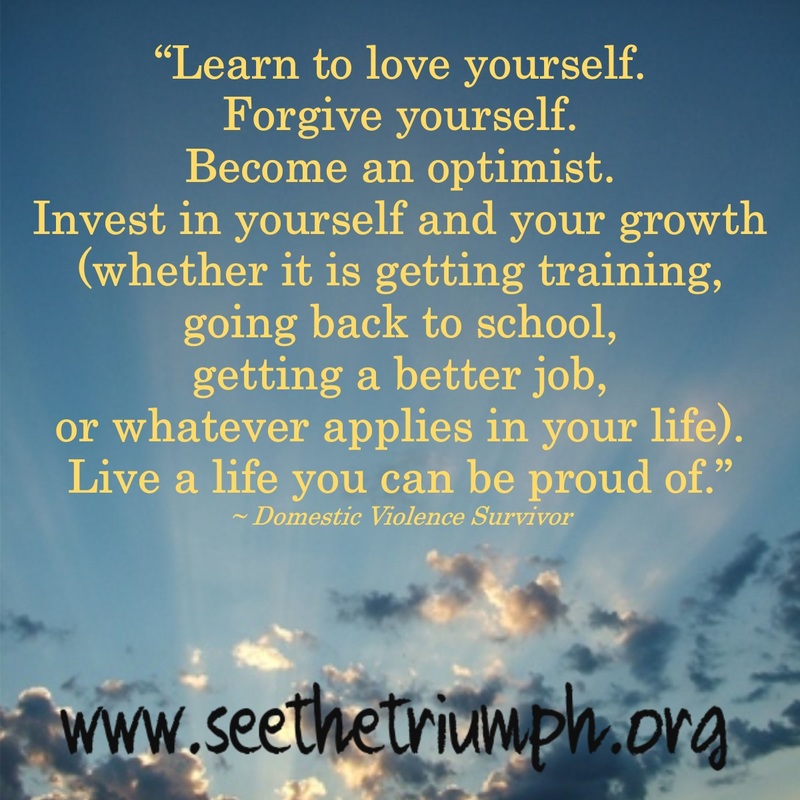
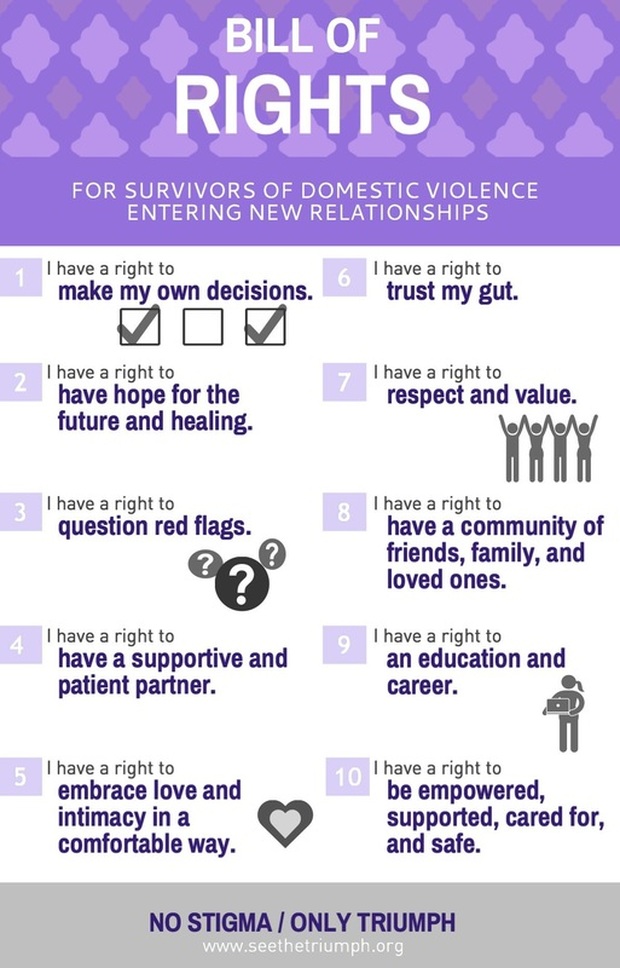
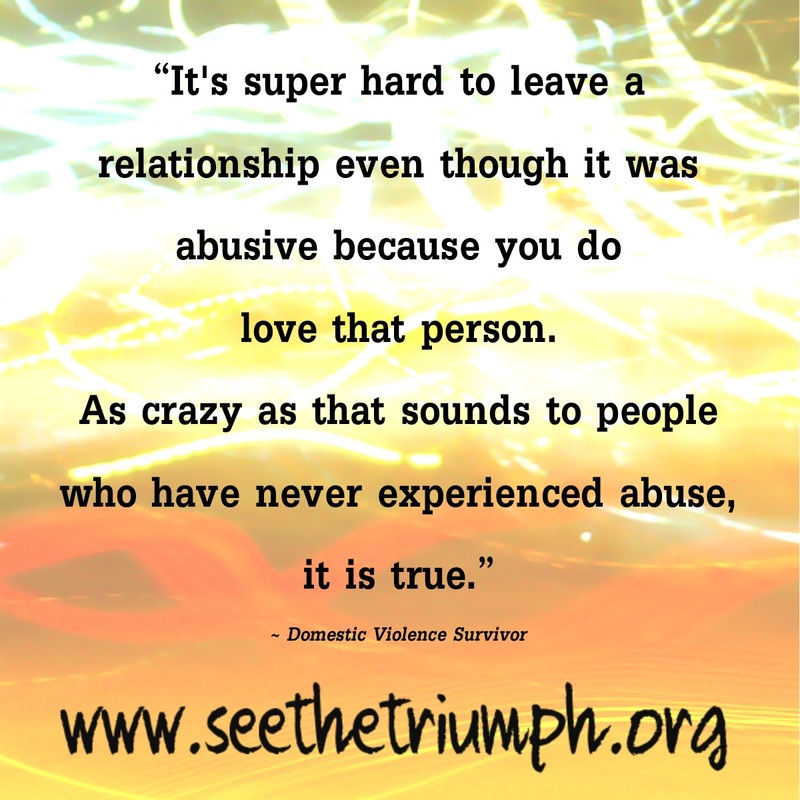
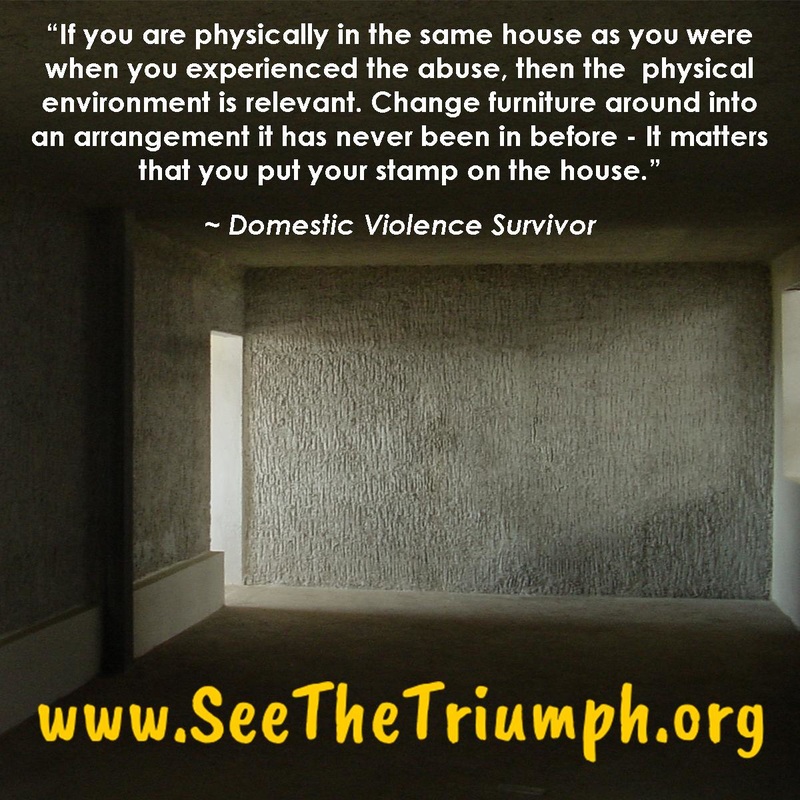
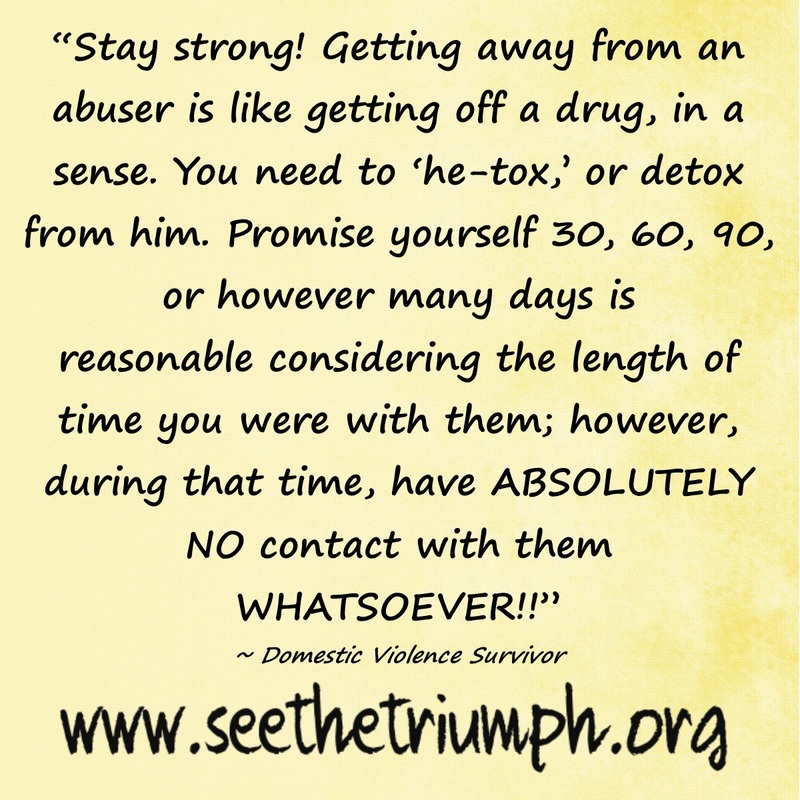
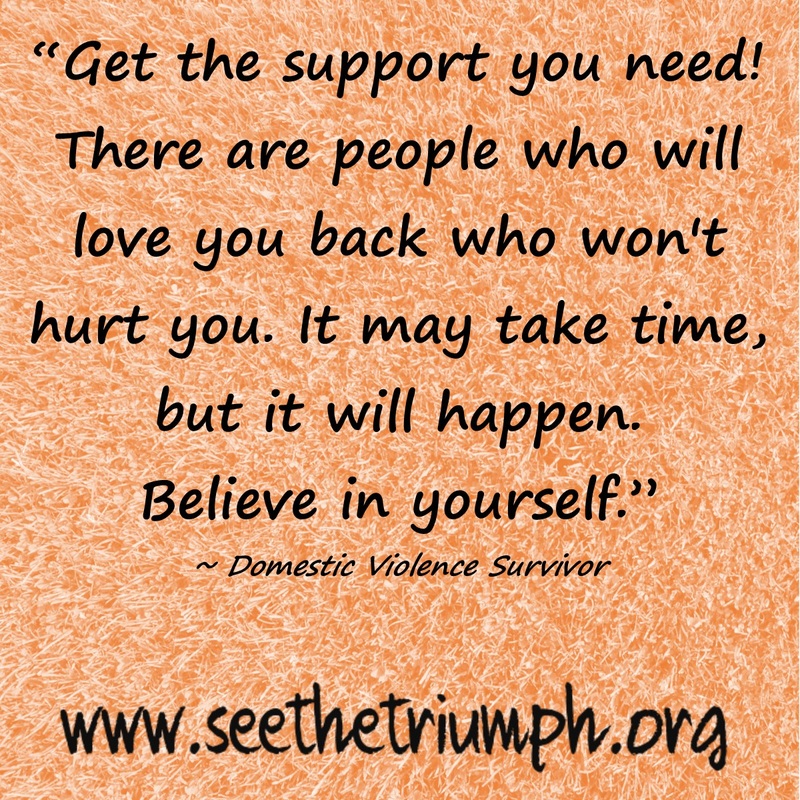
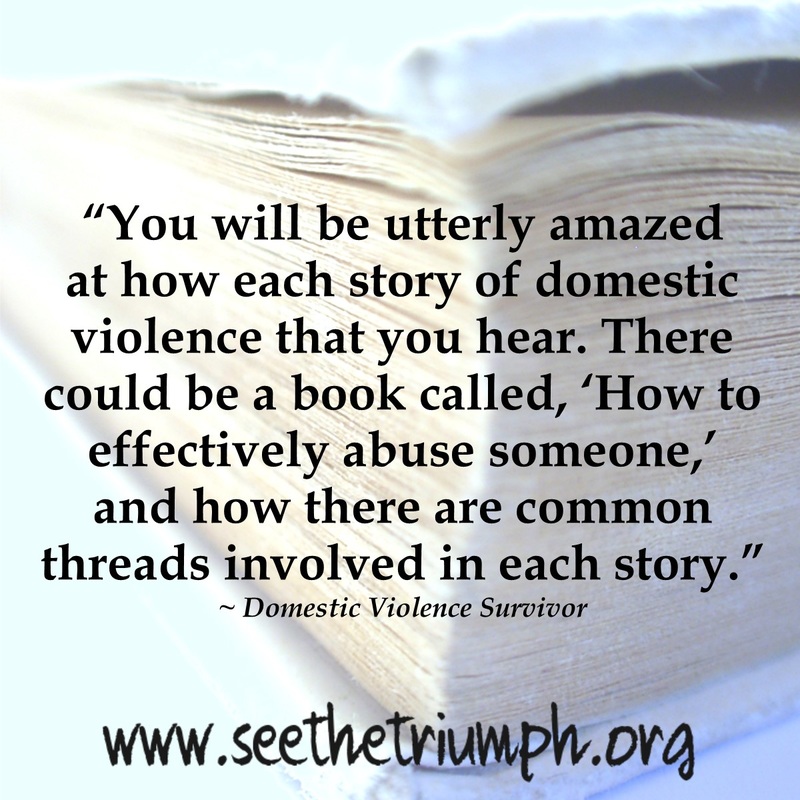
 RSS Feed
RSS Feed